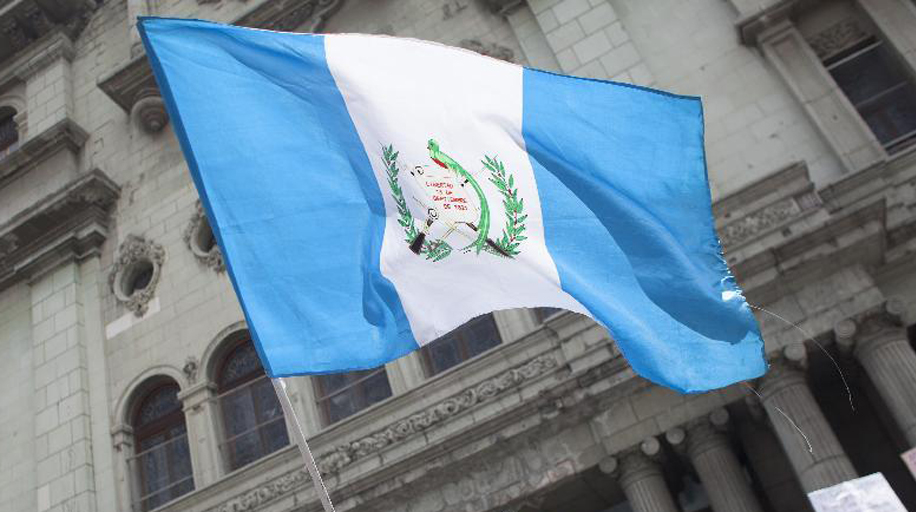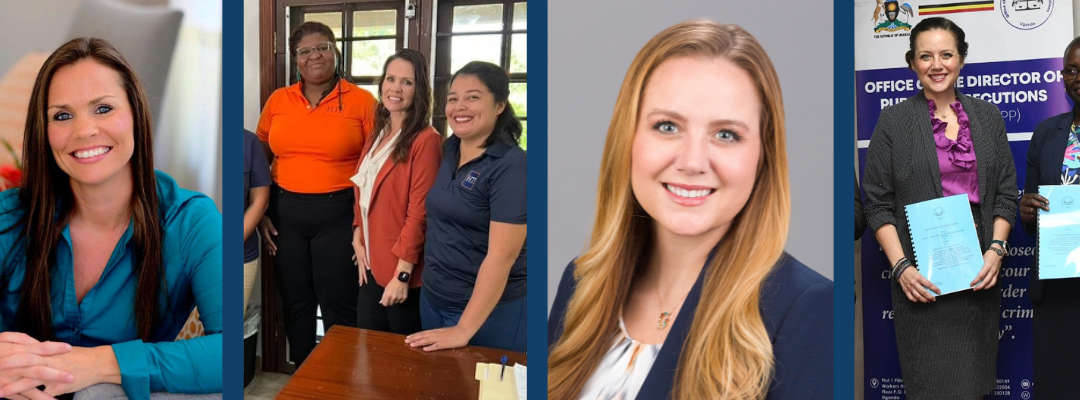The Institute’s Special Counsel in Belize Dave Fillingame and former Douglass Fellow Cory Sagduyu recently visited Guatemala to learn about this Central American country’s existing anti-trafficking framework as well as gain insight on ways in which Belize and Guatemala can partner in their efforts to fight trafficking.
“Since Belize and Guatemala are neighbors, it is important to understand the ways in which Guatemala is addressing human trafficking and then learn how those efforts have been working or not working for Guatemala,” Fillingame said. “It is also important to find ways for Belize and Guatemala to work together in the future on this issue since many victims of human trafficking in Belize originate in Guatemala.”
When traffickers and victims travel across country borders, law enforcement requires international cooperation in order to ensure justice. Only 4% of human trafficking victims detected in Guatemala are from Guatemala, meaning 96% are cross-border victims, according to Policía Nacional Civil, Guatemala.
During their visit, Fillingame and Sagduyu met with Guatemalan government officials including the head of the Human Trafficking Prosecution Unit in the Attorney General’s Office; the Secretariat against Sexual Violence, Exploitation and Human Trafficking; the Solicitor General’s Office; and the Magistrate Delia Davila of the Supreme Court. They also had meetings with End Child Prostitution, Child Pornography, and Trafficking of Children for Sexual Purposes (ECPAT Guatemala); Children’s Refuge (Refugio de la Niñez); The Development Agency of Spain (AECID); and U.S. Embassy officials.
Guatemalan government officials were enthusiastic about incorporating Belize into regional trafficking efforts in the future, including regional meetings coordinating efforts among human trafficking prosecutors and law enforcement.
“The Central American network of human trafficking prosecutors currently includes most of the trafficking prosecutors in the region — except for Belize,” Sagduyu said. “The next step in moving forward is to integrate Belize into this network, so that they can share resources and information necessary to solve cross-border cases of human trafficking.”
The Guatemalan government established a specialized trafficking prosecution unit in 2012, which is primarily concentrated in Guatemala City but also advises prosecutors who have trafficking in persons cases in the country’s outer lying regions. There are plans to expand these specialized units to eight additional states this year.
“Guatemala has already started developing the sort of specialized investigative units they need to fight human trafficking head on,” Fillingame said. “They have made a lot of progress over the past several years on this issue because of it, and there are some exciting possibilities ahead for how Belize and Guatemala can work closer together to fight trafficking going forward.”
Fillingame and Sagduyu learned from their meetings that Guatemala’s key challenges in fighting human trafficking are organized crime, narco-trafficking organizations, poverty, heavy northern migration by already vulnerable individuals from Nicaragua, El Salvador, and Honduras, corruption, and lingering patriarchal attitudes tolerant of violence against women. Belize faces many of these same challenges. Another major challenge in Guatemala is the fact that many trafficking victims are indigenous peoples, who may not speak Spanish well if at all, which can hinder the delivery of investigations and victim services.
In the 2017 Trafficking in Persons Report, released annually by the U.S. Department of State, Guatemala was classified as a “Tier 2 Watch List” country, stating that it “does not fully meet the minimum standards for the elimination of trafficking; however, it is making significant efforts to do so.” Guatemala had been classified as a “Tier 2” country but was downgraded to Tier 2 Watch List due to, among other things, a decrease in the number of new prosecutions and the number of newly identified trafficking victims as well as persistent challenges in properly caring for rescued trafficking victims, including a fire at a government-managed shelter resulting in the death of many children.




